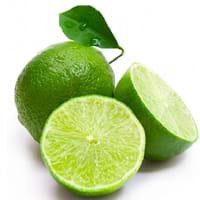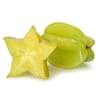Health Benefits
Arthritis treatment, Cholera treatment, Gout treatment, Heart care, Piles treatment, Scurvy treatment
Arthritis treatment, Cancer prevention, Heart care
General Benefits
Cures fever, Digestive aid, Eye care, Maintains healthy cholesterol level, Treatment of common cold
Anti-inflammatory properties, Cures cough, Cures fever, Digestive aid, Healing of wounds, Maintains healthy cholesterol level
Skin Benefits
Anti-aging benefits, Skin rejuvenation, Treatment of acne, Treatment of dark spots
Anti-aging benefits, Brightens and lightens complexion, Reduces wrinkles, Treatment of dark spots
Hair Benefits
Promotes longer and healthier hair, Treatment of dandruff
Promotes longer and healthier hair, Protects hair, Rejuvenates scalp, Shiny hair
Allergy Symptoms
Breathing difficulty, Coughing, Eye irritation, Hives, Inflammation, Nasal congestion, Runny nose, Skin rash, Wheezing
Abdominal cramps, Hives, Itching, Nausea, Wheezing
Side Effects
Chances of sunburn
Allergic reaction, Skin rash, Possibly unsafe during pregnancy
Best Time to Eat
Along with meal, Best to drink warm water with lime on an empty stomach, Don't consume at night and before bed
As a snack in the late afternoon, Eat the fresh ones, avoid mixing with any other foods, don't eat after meal., Morning time (before lunch), Strictly avoid empty stomach
Vitamin B5 (Pantothenic Acid)
Vitamin C (Ascorbic Acid)
Vitamin K (Phyllochinone)
Calories in Fresh Fruit with Peel
Not Available
Not Available
Calories in Fresh Fruit without Peel
Calories in Frozen Form
Not Available
Not Available
Calories in Dried Form
Not Available
Type
Citrus, Tree fruit
Citrus
Season
All seasons
Winter
Varieties
Key lime, Persian lime, Kaffir lime, Desert lime, Palestine Sweet Lime, Mexican Sweet Lime, Mary Ellen Sweet Lime
Clementine, Dancy, King Mandarin, Murcott, Ponkan, Robinson, Satsuma and Sunburst
Inside Color
Light Green
Orange
Texture
Succulent
Succulent
Taste
Acidic, Sour
Sweet-Sour
Origin
India
South-Eastern Asia
Grows on
Trees
Not Available
Soil Type
Clay loam, Sandy loam
Well-drained
Climatic Conditions
Sunny, Warm to hot climate
Sunny
Facts about
- Lime is the called as the powerhouse of flavors.
- Fresh lime juice is so acidic that it can dissolve concrete.
- Limes are more fragrant and acidic than lemons.
- Persian limes are almost seedless and thorn less.
- It is known by another name ' Mandarin'.
- Oil extracted from its peel is used in various skin and hair care products.
- Tangerines is also known as the ‘Christmas Orange’ because it is used to stuff kids' stockings..
Spirits
Yes
Not Available
Cocktails
Yes
Not Available
Other Countries
Argentina, Brazil, India, Mexico
Brazil, Iran, Italy, Japan, Korea, Morocco, Spain, Turkey
Top Importer
United States of America
China
Top Exporter
Mexico
Spain
Botanical Name
Citrus aurantifolia
Citrus reticulata
Synonym
not available
Citrus clementina or Citrus nobilis
Subkingdom
Tracheobionta
Tracheobionta
Division
Magnoliophyta
Magnoliophyta
Class
Magnoliopsida
Magnoliopsida
Order
Sapindales
Sapindales
Species
C. aurantifolia
C. reticulata
Generic Group
Citrus fruit
Citrus fruit
Difference Between Lime and Tangerine
We might think that Lime and Tangerine are similar with respect to nutritional value and health benefits. But the nutrient content of both fruits is different. Lime and Tangerine Facts such as their taste, shape, color, and size are also distinct. The difference between Lime and Tangerine is explained here.
The amount of calories in 100 gm of fresh Lime and Tangerine with peel is Not Available and Not Available and the amount of calories without peel is 30.00 kcal and 53.00 kcal respectively. Thus, Lime and Tangerine belong to Low Calorie Fruits and Low Calorie Fruits category.These fruits might or might not differ with respect to their scientific classification. The order of Lime and Tangerine is Sapindales and Sapindales respectively. Lime belongs to Rutaceae family and Tangerine belongs to Rutaceae family. Lime belongs to Citrus genus of C. aurantifolia species and Tangerine belongs to Citrus genus of C. reticulata species. Beings plants, both fruits belong to Plantae Kingdom.









